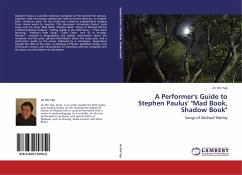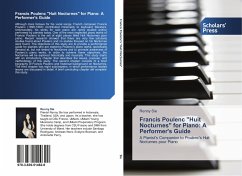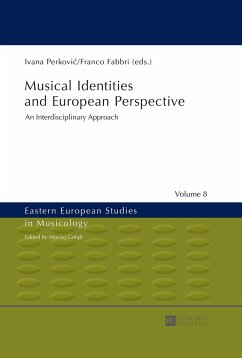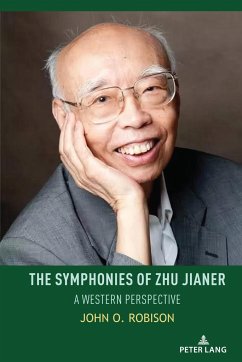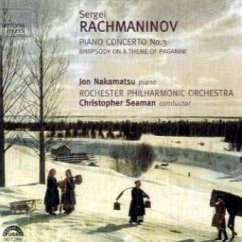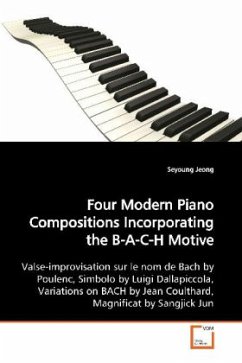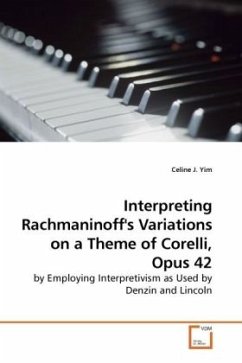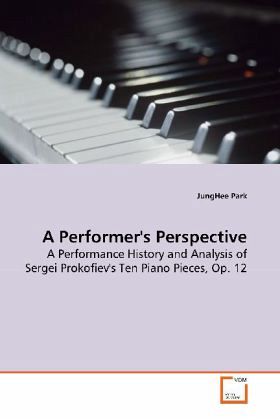
A Performer's Perspective
A Performance History and Analysis of Sergei Prokofiev's Ten Piano Pieces, Op. 12
Versandkostenfrei!
Versandfertig in 6-10 Tagen
32,99 €
inkl. MwSt.

PAYBACK Punkte
16 °P sammeln!
Sergei Prokofiev (1891 1953) can be considered both as one of the most important composers of the early twentieth century and as a piano virtuoso. This book examines both of these aspects by studying Prokofiev s recorded performances of his own work, in a historical context, and comparisons made between his recordings and the recordings of other pianists spanning from his generation into the present. The comparisons show how his performance practice has changed over time, and how this change has influenced the performance of Prokofiev s works. This book focuses on one particular piece for comp...
Sergei Prokofiev (1891 1953) can be considered both
as one of the most important composers of the early
twentieth century and as a piano virtuoso. This book
examines both of these aspects by studying
Prokofiev s recorded performances of his own work,
in a historical context, and comparisons made
between his recordings and the recordings of other
pianists spanning from his generation into the
present. The comparisons show how his performance
practice has changed over time, and how this change
has influenced the performance of Prokofiev s works.
This book focuses on one particular piece for
compositional and performance analysis, the Ten
Piano Pieces, Op. 12 (1906 1913). The goal of this
book is to contribute to the growing field of
research in historical performance practice from the
early twentieth century until the present,
particularly for works of the early twentieth
century. In highlighting how performance practice
has changed, not only do scholars gain a deeper
insight into how to understand works in a historical
context, but performers can also gain much by
becoming aware of how works have been interpreted by
the composer and others who came after.
as one of the most important composers of the early
twentieth century and as a piano virtuoso. This book
examines both of these aspects by studying
Prokofiev s recorded performances of his own work,
in a historical context, and comparisons made
between his recordings and the recordings of other
pianists spanning from his generation into the
present. The comparisons show how his performance
practice has changed over time, and how this change
has influenced the performance of Prokofiev s works.
This book focuses on one particular piece for
compositional and performance analysis, the Ten
Piano Pieces, Op. 12 (1906 1913). The goal of this
book is to contribute to the growing field of
research in historical performance practice from the
early twentieth century until the present,
particularly for works of the early twentieth
century. In highlighting how performance practice
has changed, not only do scholars gain a deeper
insight into how to understand works in a historical
context, but performers can also gain much by
becoming aware of how works have been interpreted by
the composer and others who came after.




